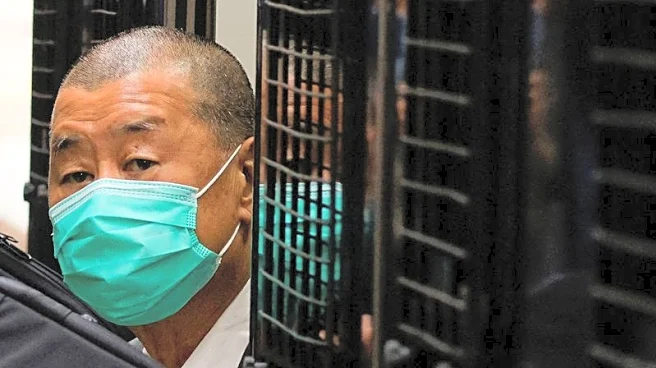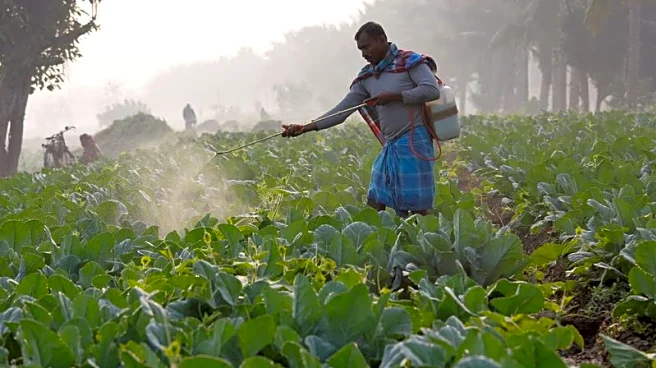What's Happening?
The United Nations has reported a record number of aid worker fatalities in 2024, with 383 individuals killed in global hotspots. Nearly half of these deaths occurred in Gaza amidst the ongoing conflict between Israel and Hamas. The UN humanitarian office highlighted the alarming increase in violence against aid workers, with 599 major attacks recorded last year, marking a significant rise from 420 in 2023. The Aid Worker Security Database noted that most victims were national staff serving their communities, attacked either on the job or at home. The deadliest incident took place in Rafah, Gaza, where Israeli troops reportedly killed 15 medics and emergency responders in clearly marked vehicles. The UN has called for accountability and protection for civilians and aid workers, emphasizing the need for international action.
Why It's Important?
The surge in violence against aid workers underscores the perilous conditions faced by humanitarian personnel in conflict zones. This trend poses significant challenges to global humanitarian efforts, potentially hindering aid delivery and exacerbating crises in affected regions. The UN's call for accountability highlights the need for stronger international measures to protect aid workers and civilians. The increase in attacks could deter future humanitarian missions, impacting vulnerable populations reliant on aid. The situation in Gaza, along with other hotspots like Sudan and Lebanon, reflects broader geopolitical tensions that complicate humanitarian operations and necessitate urgent diplomatic interventions.
What's Next?
The UN and humanitarian organizations are likely to intensify efforts to advocate for the protection of aid workers and civilians. This may involve diplomatic engagements with governments and international bodies to establish accountability mechanisms and enhance security measures. The ongoing conflicts in Gaza and other regions will continue to be monitored closely, with potential implications for future humanitarian strategies. Stakeholders may also explore innovative approaches to safeguard aid workers, including technological solutions and policy reforms. The international community's response to these developments will be crucial in shaping the future of humanitarian work in conflict zones.
Beyond the Headlines
The record number of aid worker fatalities raises ethical questions about the responsibilities of international actors in conflict zones. The lack of accountability for attacks on humanitarian personnel highlights systemic issues within global governance structures. This situation may prompt discussions on the legal frameworks governing humanitarian operations and the protection of aid workers. Additionally, the cultural dimensions of these conflicts, including historical grievances and power dynamics, could influence the effectiveness of humanitarian interventions. Long-term shifts in international policy and cooperation may be necessary to address these complex challenges.










